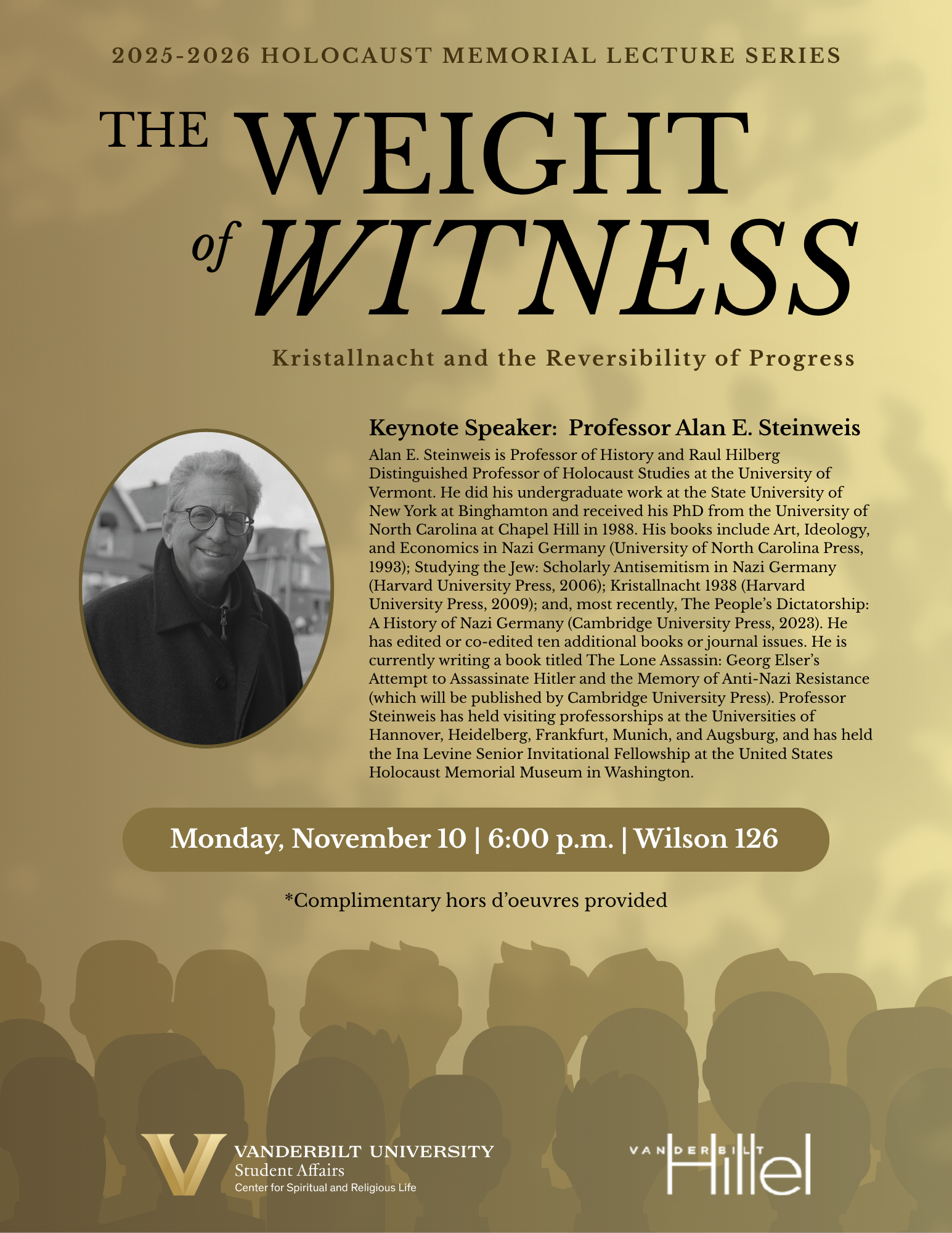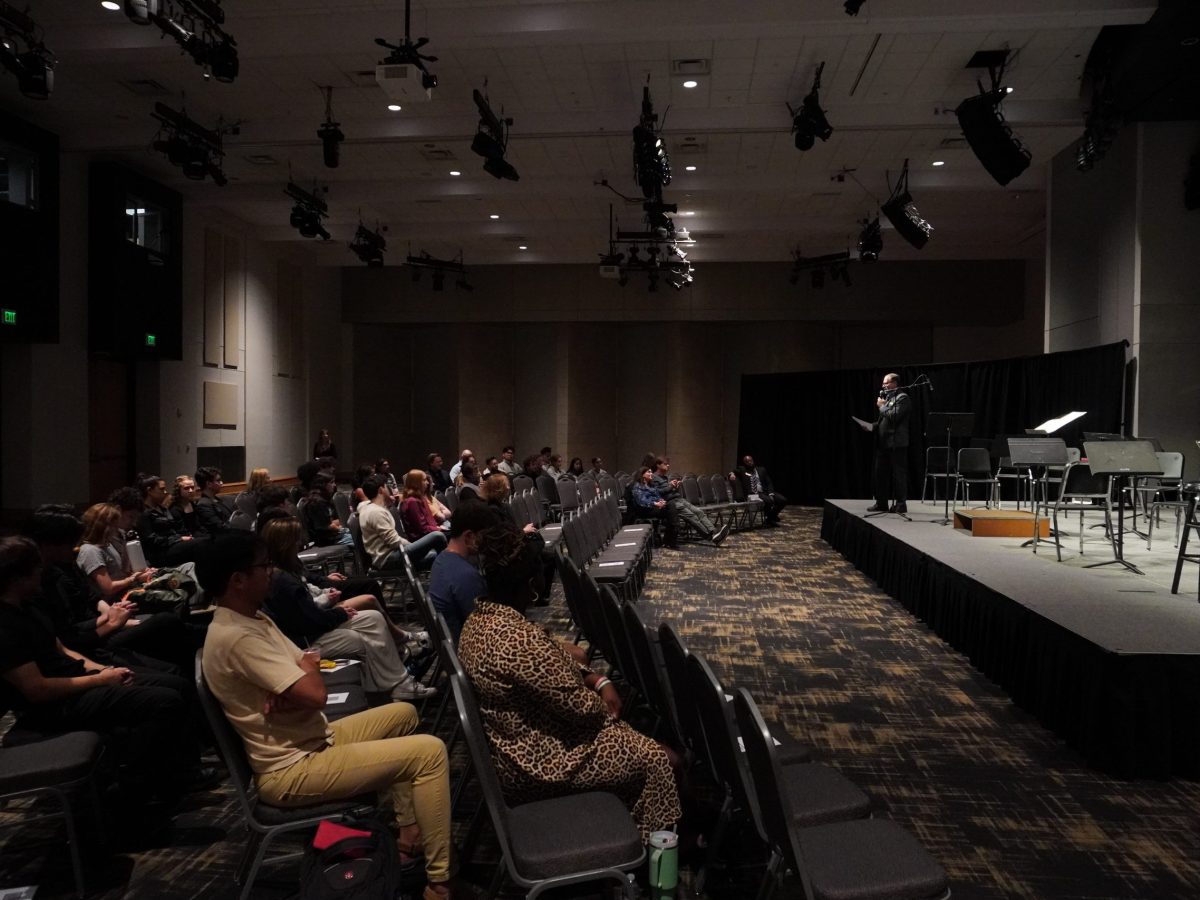Holocaust Lecture Series
The 2025-26 Holocaust Lecture Series underscores "The Weight of Witness."
 Dr. Alan E. Steinweis, Professor of History and Raul Hilberg Distinguished Professor of Holocaust Studies at the University of Vermont, joins Vanderbilt for lecture titled “Kristallnacht and the Reversibility of Progress."
Dr. Alan E. Steinweis, Professor of History and Raul Hilberg Distinguished Professor of Holocaust Studies at the University of Vermont, joins Vanderbilt for lecture titled “Kristallnacht and the Reversibility of Progress."
Co-sponsored by the Holocaust Lecture Series, Hillel, and the Max Kade Center for European and German Studies
